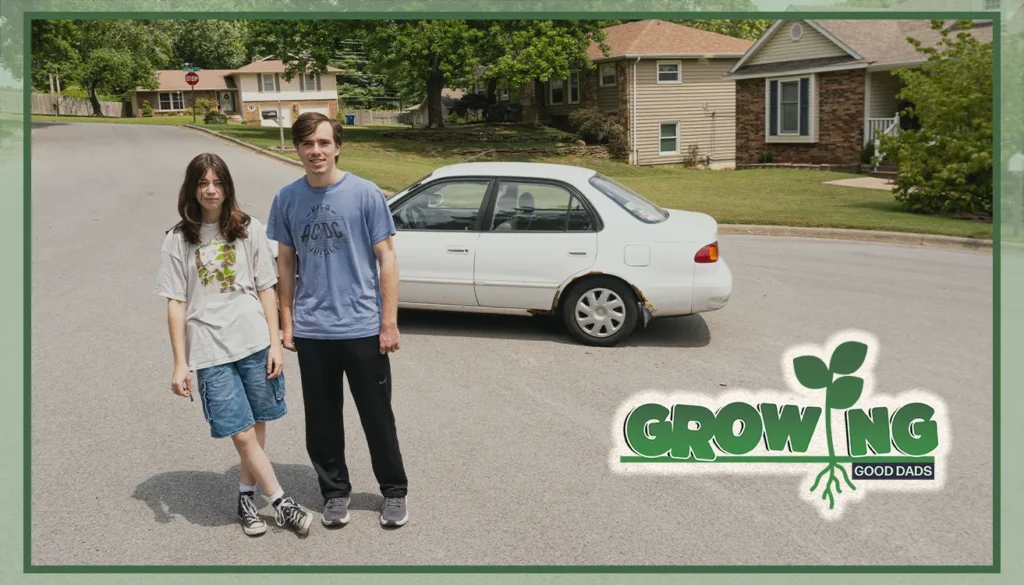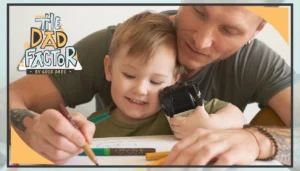For the last 10 years or so, my dad has seen a lot from the passenger seat of our beat-up 2001 Corolla. When I say a lot, I mean it: Dad has helped three teens navigate the road and helping them learn all they need to ace the license exam. He played a pivotal role in helping me learn to drive a decade ago, and now he’s empowering two of my teenage siblings behind the wheel, too.
My brother AJ and my sister Reagan are in the thick of driving – she just got her license at the beginning of July, and he’ll be ready to test for his in October. The three of us sat down in my childhood home in Springfield to talk about what teens need from their dads as they work to master the art of driving.
(Responses are edited for length and clarity.)
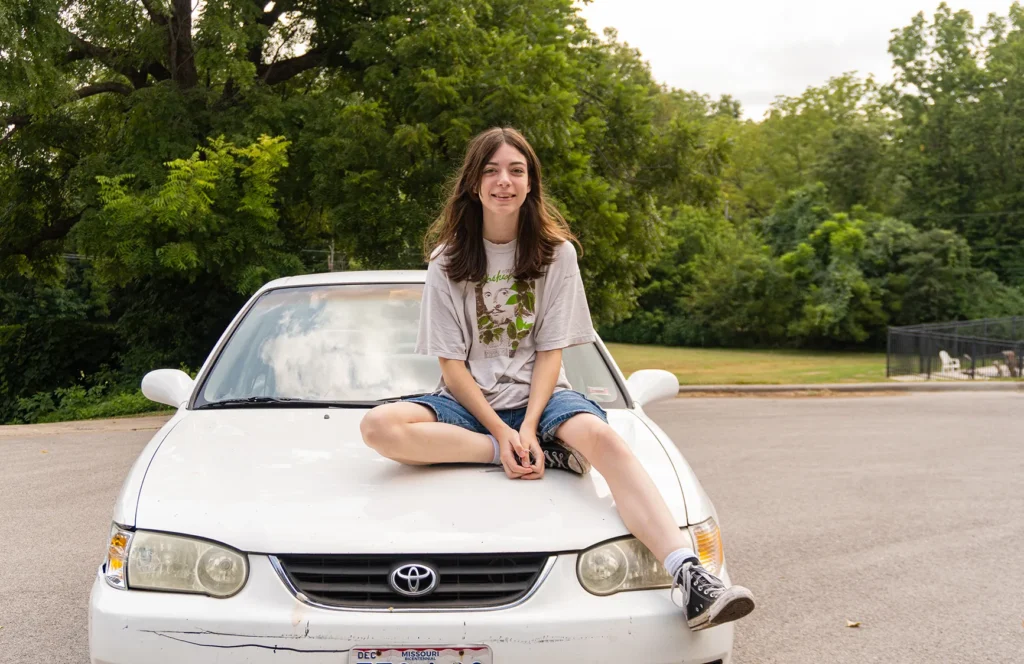
Tell us what your experience has been like learning to drive, and what role our dad played in that.
AJ: The role Dad’s particularly good at playing is that he is very honest. If he thinks you’re struggling with something, he’ll say so. But he’s not brutal about it; it’s not like he’s trying to offend you or stress you out.
And on the flipside, if he thinks you’re doing well, he’ll say something. Sometimes he’ll say something like, “You’re driving at a good speed,” but overall, he’s just really good at paying close attention to the exact situation you’re in. He knows how to help me correct my mistakes.
Reagan: Dad’s good at explaining things in ways I can understand. Like, he taught me to parallel park in a way that I got. He also has a great mindset of what sorts of things to keep an eye out for while on the road. He’s always very aware, like, he’s watching other drivers and observing traffic. He knows how to be attentive even when he’s not behind the wheel.
What sorts of things do young drivers tend to feel nervous about?
Reagan: Busy roads, for sure. It’s enough pressure as-is when you already don’t know what you’re doing, but having to deal with a lot of traffic on top of that is so stressful.
AJ: A lot of it is visibility. Until you learn how to check your mirrors and check over your shoulders, it’s nerve-wracking. One things dads can do early on in the learning process is have your kids practice in an empty parking lot. They can learn how the car works, how the gas pedal feels, how fast the car accelerates, how the steering feels, and even the dimensions of the car.
Say a dad notices his child is nervous or unconfident with driving. How might a dad be encouraging and push them in the right direction without making the anxiety worse?
Reagan: Take them to low-pressure places, like empty parking lots, and be super supportive. Make an open space where your kid can learn and make mistakes without fear of getting in trouble.
AJ: This kind of ties back to what I said earlier about being honest. Offer feedback about what the teen is doing well; it really helps you understand that you’re not doing as badly as you think, that you don’t have to be nervous.
When is it time to take the challenge up a notch?
AJ: I’d say build it up slowly. Dads should observe if their kid can control the speed of the car, stay in their lane, not turning too wide or too sharp, stop at stop signs and yield the right of way. If you’re not seeing too many problems in these fundamentals, a good next step up from just driving in an empty parking lot might be to drive in a low traffic neighborhood. But be sure to have a conversation about that first. It’s up to you and the teen to choose whether to level-up, so to speak.
Other than being knowledgeable about traffic laws, what else makes a good driving instructor? What do dads need to be good teachers?
AJ: Patience! They need to be trusting of the person they’ve put behind the wheel. It’s also helpful to be familiar with the particular road you’re at. I’d recommend practicing driving in a place you’ve been plenty of times before.
Reagan: Dads should help their kids by being familiar with what you need when it comes to the actual test. Educate yourself on the process, where you need to go, what the next steps are, what kind of paperwork you need, and stuff like that. You might look on the DMV website or talk to other kids’ parents to learn more about this. Have a plan.
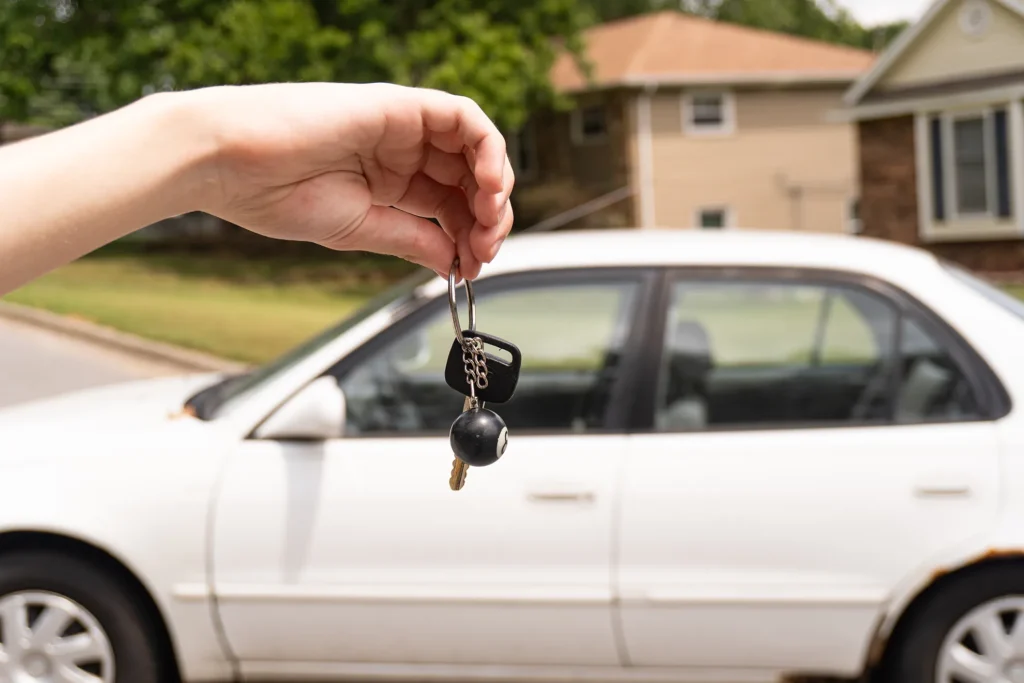
What other skills should dads teach their kids?
AJ: Dad taught me how to check the oil level with the dipstick. We’ve also talked about other safety things, like not holding the gas can in your hands when you’re filling it, but instead putting it on the ground. We’ll talk about how to change a tire soon.
Do you have any ideas or advice for the type of car that’s best to practice on?
Reagan: I liked learning in a small car, but I also liked that Dad lets us practice on the minivan, too. That way I can get a feel for and adapt to other kinds of cars. If you have access to more than one car, I’d recommend that.
For dads picking a car to teach young drivers, I definitely wouldn’t choose a brand-new car. Pick something busted. It took off a lot of pressure knowing that our Corolla is, like, really old.
What does learning to drive mean to you?
AJ: The type of car you drive is indicative of your personality, and it can be an opportunity for self-expression. If you drive a truck, maybe you’re a “get the work done” kind of person. If you have an off-roading, rugged car, like a Jeep, that says something about you. If you have a sensible sedan, a sports car—every car says something different about you.
Reagan: It’s definitely made me more independent and opened up a lot of opportunities to be out by myself, and not rely on, like, “oh, Mom needs to drive me here.” I have so much more freedom to do what I want, whenever I want. And because Mom and Dad aren’t super strict, they’re generally OK with that as long as I let them know where I’m going. I was also able to get a new job opportunity now that I can drive myself to work every day.
Do dads have a responsibility to set rules and boundaries with the car, e.g., who’s allowed in the car, curfews, etc.?
Reagan: Yeah, it’s totally appropriate to have that conversation. As a parent, you want to keep your kids safe and make sure you know where they’re at and who they’re with. It’s a respectful thing to let your parents know what’s going on in your life, so it’s totally fair to have those boundaries.
Should dads step in and set the rules when multiple teens are sharing a car, or should that be left up to the siblings?
Reagan: It’s our schedules, so I figured that AJ and I would talk about that together after he gets his license. It seems like something we ought to be able to figure out together.
But I’m definitely going to rely on Dad to help me car shop before it becomes too big of an issue. I’ve been saving up, and Dad’s the person I’ll go to—and I’m sure he’ll want to be involved in that process. He says he only wants me driving a Honda or a Toyota. He’s opinionated like that. He told me to get a newer year Corolla, and I’m like, “I don’t want another Corolla!”
Any parting wisdom for Good Dads readers?
Reagan: Use this part in your teen’s life as an opportunity to bond and make memories. Don’t put too much stress on it. Keep a level head. Obviously, it’s a lot of teaching and a lot of work, but it might be fun or whatever.
AJ: If your kids are feeling extra nervous, take small steps. It’s OK to be nervous, but when you take small steps toward your goal, it’s a lot easier. Help your teen realize that they’re not going to start learning on busy roads with cars whizzing by. They’ll get to that part only when they’re ready.
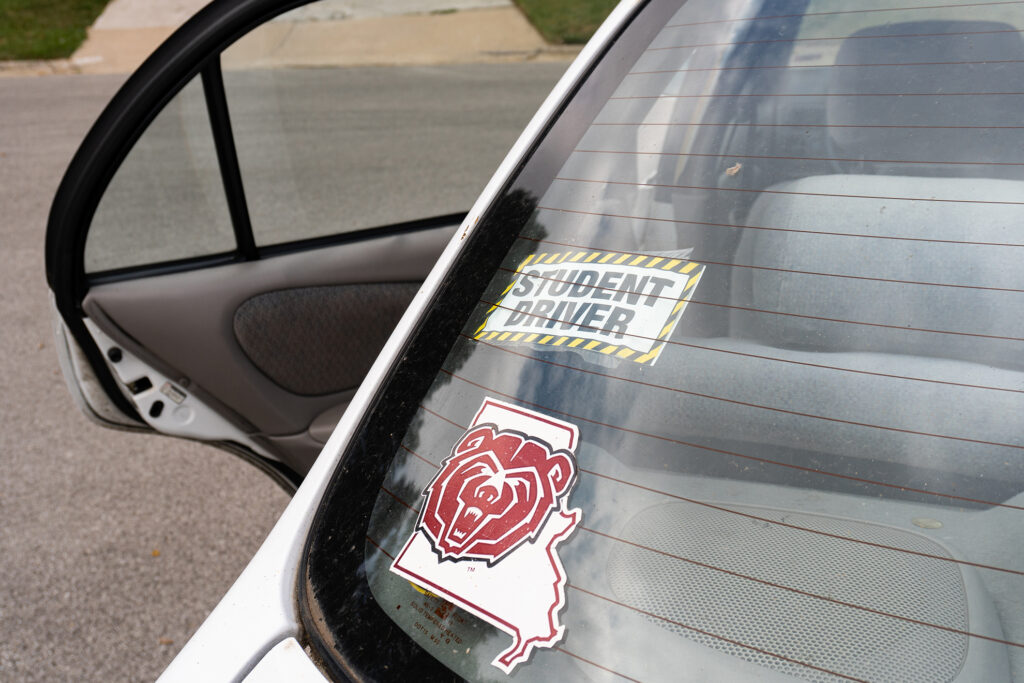
Dad’s not out of the woods yet: Our baby brother Dean, the youngest Dudenhoeffer, turns 15 this fall!
We want to hear from you!
Have you been in the passenger seat lately? Submit your photos of teens learning to drive for a chance to be featured on Good Dads social media or future blogposts! Send us your pics, comments or hellos at [email protected] or reach out to us online via our Contact form.

